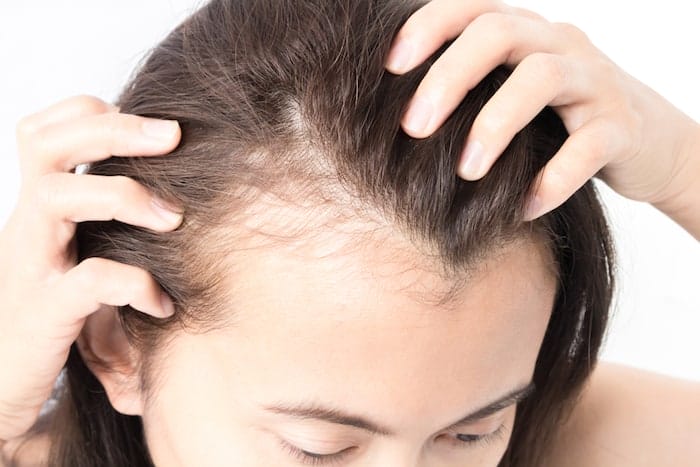The American Academy of Dermatology says that it is normal to lose around 50 to 100 hair strands per day. But while you are expecting, the increase in hormones, including estrogen and progesterone, stimulates hair growth and prevents hair from falling out. These soaring hormones cause hair to remain in an ongoing stage of growth, resulting in thick and full, luscious locks.
In the months following delivery is another story-postpartum hair loss becomes real. But that is completely normal as hair growth remains in the resting stage. In fact, according to the American Pregnancy Association, this temporary hair loss affects 40 to 50 percent of new moms.
Your reliable ob-gyn from Provo might not have been able to discuss these in detail with you, but hormones are the biggest culprits for pregnancy hair changes and postpartum hair loss. While normal hair loss means shedding 50 to 100 hair strands per day, new mothers can lose up to 400. There are no steps around this temporary hair loss, but there are ways to lessen it.
Maintain a healthy diet
According to the American Pregnancy Association, maintaining a healthy diet with lots of fruits and vegetables helps provide protection for hair follicles and minimize hair loss. A diet that contains plenty of protein and iron is also vital for postpartum women in making sure that their bodies are going to get help for overall recovery.
Supplement your diet with vitamins and nutrients
Vitamins should never be a substitute for a healthy diet. But supplements can be especially helpful if you lack the following nutrients: biotin or vitamin B complex, vitamins C and E, iron, and zinc.
A number of reviews and studies focusing on the deficiency in these vitamins and nutrients found that supplementation provides strength and structure for our scalp and hair follicles, resulting in improved hair growth. Some of these nutrients, however, could already be part of your prenatal vitamins, so always discuss these with your doctor first because over-supplementation could instead contribute to hair loss.
If your doctor finds out that you have iron deficiency, they may recommend taking iron infusion in Los Angeles or in other cities in the US. It delivers iron directly into the bloodstream, which quickly and effectively increases iron levels in the body. This can help to reverse the effects of iron deficiency anemia and improve hair growth.
Change your hair care regimeNT
During postpartum hair loss, reduce harmful styling habits and be extra gentle when handling your tresses to prevent excessive hair loss.
- Hold off on the ponytails, buns, pigtails, cornrows, braids and tight hair rollers that can pull and stress the hair.
- Try using a shampoo that is fortified with biotin and silica to add body to your hair.
- Avoid brushing too hard, especially when the hair is wet and fragile.
- Reschedule coloring your hair and using hair gels to a later date since these can also stress and cause the hair to fall out in bigger clumps.
- Skip the blow dryers, hair straighteners, and curling irons, too.
- Wear your hair down as often as you can until you get past this temporary hair loss stage.
Reduce stress
It has been well-established that stress causes hormonal imbalance, which manifests in a number of ways, including hair loss. This type of hair loss is called telogen effluvium. Taking steps to reduce stress levels, such as taking enough rest, practicing different relaxation techniques, and even exercising, can help minimize postpartum hair loss.
Although temporary, postpartum hair loss is surprising and stressful for many new moms. Understanding that this is common should make you feel better. Following the suggestions given above will help minimize your postpartum hair loss.






